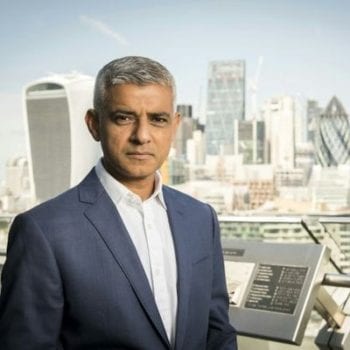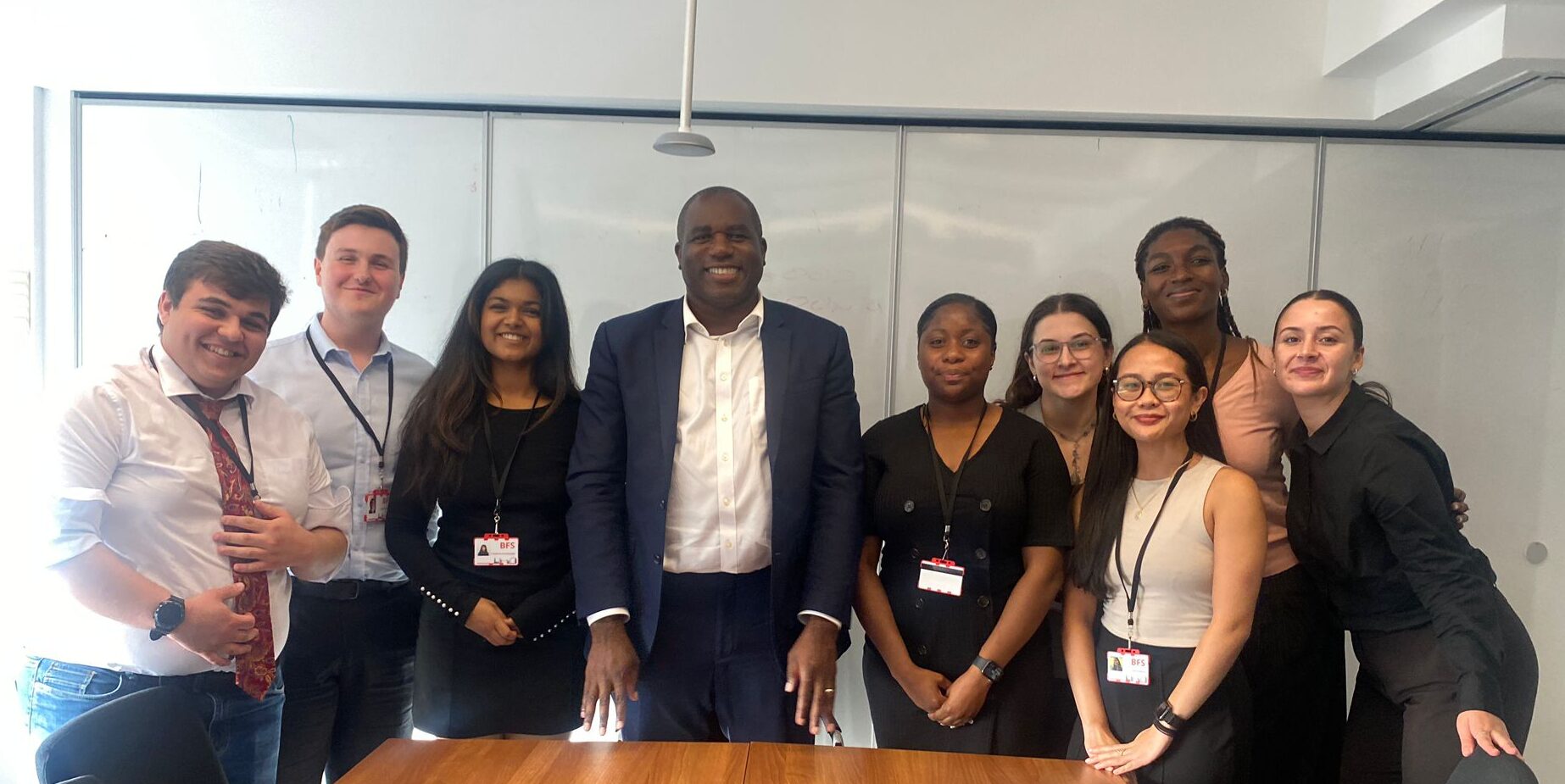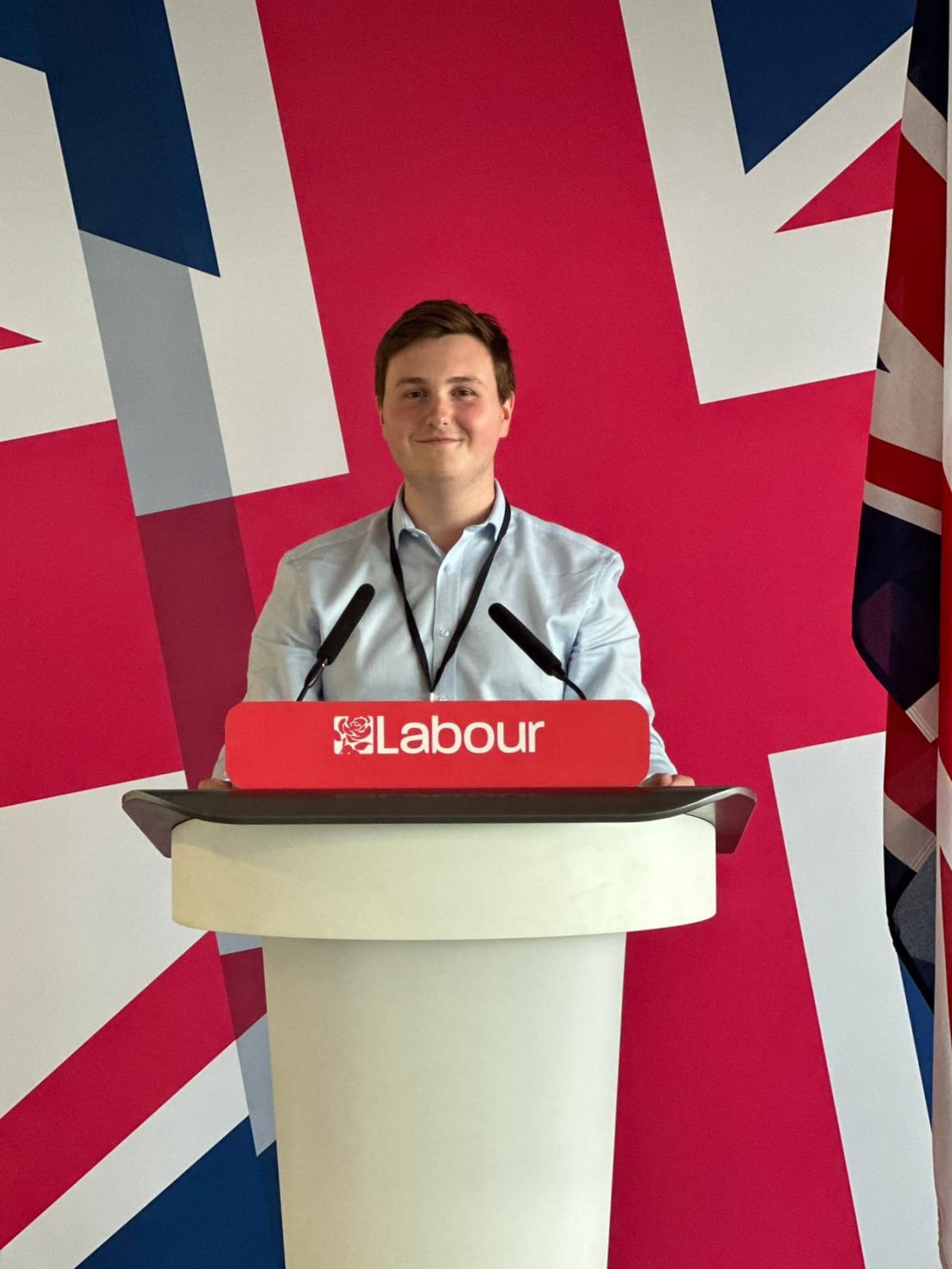Over the last five years, I have seen Patchwork grow from strength to strength. It’s work with underrepresented communities, especially young people, is not only important to get young people involved in our democracy, but has also completely changed so many people’s lives.
I was very excited and grateful when asked to represent the Patchwork Foundation at the Second World War memorial in Gdansk. Having studied modern History, I was fully aware of how influential the war in shaping our current reality. At University, I read countless of books on how political parties and governments across the worlds sought to learn from the experience of the war and how they sought to avoid making similar mistakes. However, this trip provided an opportunity to look beyond books and see the legacy of the War from the city that was first affected by it. The experience of the Second World War in Britain was also quite different to that of the countries in continental Europe, as Britain was never invaded. Therefore, the conference was a chance to fully understand how the War was a travesty for people across the world.
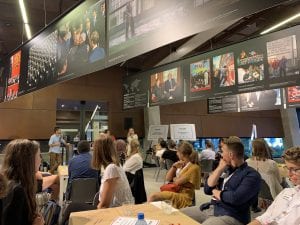 The Conference started with a guided tour of the Free City of Gdansk with other participants of the Youth Conference. We were able to see how Gdansk thrived from diversity throughout its history. Its beautiful city centre had a range of influences that only enriched the city’s culture. It also paid homage to one of Britain’s best playwrights as it features a Shakespearean theatre. The theatre showcases a range of prominent plays, such as Hamlet, which remain relevant to our society and politics today. The success of the theatre is an ardent reminder that we can only gain when we learn from each other. We also went to the European Solidarity Centre where we visited the permanent exhibition on the Polish resistance to Soviet Communism. It was inspirational how a non-violent protest was able to bring about the collapse of the iron curtain in Poland.
The Conference started with a guided tour of the Free City of Gdansk with other participants of the Youth Conference. We were able to see how Gdansk thrived from diversity throughout its history. Its beautiful city centre had a range of influences that only enriched the city’s culture. It also paid homage to one of Britain’s best playwrights as it features a Shakespearean theatre. The theatre showcases a range of prominent plays, such as Hamlet, which remain relevant to our society and politics today. The success of the theatre is an ardent reminder that we can only gain when we learn from each other. We also went to the European Solidarity Centre where we visited the permanent exhibition on the Polish resistance to Soviet Communism. It was inspirational how a non-violent protest was able to bring about the collapse of the iron curtain in Poland.
After this, we took part in a World Café with the representatives from other cities. Here, we discussed the challenges and solutions for our generation in 50 years. It was inspiring to speak to enthusiastic and passionate young people from across the world. There were representatives from as far as Nagasaki, as well as many countries in Europe. Our conversations made me re-evaluate my own assumptions about the future and encouraged me to take a more active part in these problems, such as the pressing issue of climate change.
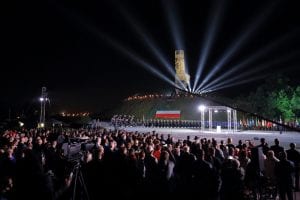 However, the most powerful moment of the trip was attending the Westerplatte memorial on the morning of 1st September. It was humbling to experience the whole ceremony (albeit at 5AM). Speeches were made from politicians and religious representatives of all faiths; Priests, an Imam and a Rabbi were invited to make prayers. Once we had breakfast,we were lucky to attend a panel which featured our own Mayor of London, Sadiq Khan, as well as representatives from Berlin, EU, and other Polish cities. The conversation was fruitful and it concluded with a unifying message about learning from the Second World War at a time of strife. The Panel was a fitting conclusion for a conference that was an educational and formative for my own understanding of the war.
However, the most powerful moment of the trip was attending the Westerplatte memorial on the morning of 1st September. It was humbling to experience the whole ceremony (albeit at 5AM). Speeches were made from politicians and religious representatives of all faiths; Priests, an Imam and a Rabbi were invited to make prayers. Once we had breakfast,we were lucky to attend a panel which featured our own Mayor of London, Sadiq Khan, as well as representatives from Berlin, EU, and other Polish cities. The conversation was fruitful and it concluded with a unifying message about learning from the Second World War at a time of strife. The Panel was a fitting conclusion for a conference that was an educational and formative for my own understanding of the war.
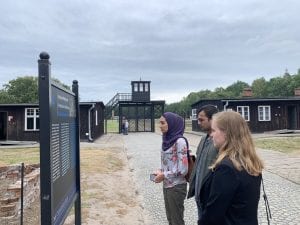 Finally, special mention must be given to experience of European Jews during the War. In our tour of the city, we visited one of the memorials of the Kindertransport. Gdansk was one of the cities where Jewish children emigrated out of Europe to the UK, without their parents. In our final day, the representatives of Patchworks visited the Stutthof concentration camp, which was just outside Gdansk. From both experiences, it was clear that the suffering of Polish Jews was unique and incomparable. Frans Trimmermans, EU Vice-President similarly picked up on this in his speech at Westerplatte, where he mentioned the unique tragedy that the Jewish community went through. Their experience should serve as a warning of what humans could be capable of, especially with the current increase of anti-Semitism across the world.
Finally, special mention must be given to experience of European Jews during the War. In our tour of the city, we visited one of the memorials of the Kindertransport. Gdansk was one of the cities where Jewish children emigrated out of Europe to the UK, without their parents. In our final day, the representatives of Patchworks visited the Stutthof concentration camp, which was just outside Gdansk. From both experiences, it was clear that the suffering of Polish Jews was unique and incomparable. Frans Trimmermans, EU Vice-President similarly picked up on this in his speech at Westerplatte, where he mentioned the unique tragedy that the Jewish community went through. Their experience should serve as a warning of what humans could be capable of, especially with the current increase of anti-Semitism across the world.
About the author:
Abdulla Zaman is a future trainee solicitor for Latham & Watkins and is currently preparing for the Legal Practice Course at BPP University. He is a graduate of the Patchwork Foundation and is active in the mosque local to his community in Bromley. For his undergraduate degree, he studied History at the University of Cambridge, where he was involved in his college student union and the University Islamic Society.
Stay updated
Join our mailing list to stay up to date with all the latest!
Testimonials
